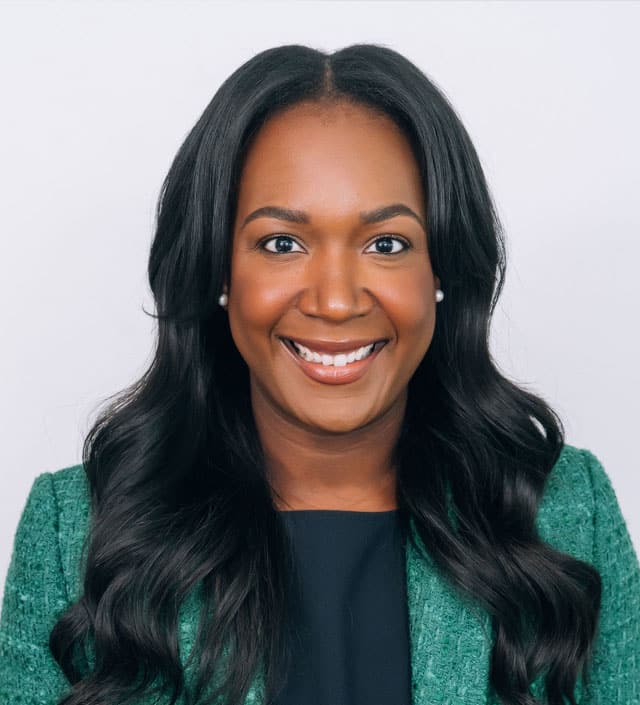Some of the world’s wealthiest families are shifting away from stocks in favor of bonds and private equity, and they’re prioritizing financial fitness over family unity amid continuing economic uncertainty.
This is according to Citi Private Bank’s fourth annual survey of family office clients, a sample that includes 268 entities from around the world with a combined net worth of $565 billion. In addition to family offices, the Citibank division caters to ultra-high-net-worth individuals, professional investors, lawyers and law firms, and professional services firms.
Family offices listed as top priorities this year “typical wealth management services” (74%) and “mainly investment management” (55%). That’s a big change from 2022, when their top priority was family unity and continuity (34%). This has fallen to near the bottom of their list and is now the chief concern for just 21% of family offices.
“While it seems surprising at first glance, there was a similar pattern during the global financial crisis or the Covid pandemic, when family offices were very busy dealing with uncertainty and as a result partially disengaged from addressing family issues,” one of the reports’ authors, Alexandre Monnier, global head of Family Office Advisory with Citi Private Bank, tells Rethinking65 through email. “However, it will need to be corrected before too long to avoid impacting families negatively.”
Family offices in North America and around the world cited a variety of concerns, including inflation and interest rates, but nearly all said they expected portfolio appreciation over the coming year, according to the report.
Most family offices reported portfolio gains of up to 10%. In North America, 7% saw gains of more than 20%; 9% had gains of 10% to 20%; 54% had gains of up to 10%; 7% had no change; and 23% experienced declines.
Recession jitters fuel flight from stocks
Although stock markets extended their gains from the lows of last October, family offices shifted their portfolios away from public equity. Globally, 38% of family offices reduced stock holdings while 20% increased them. In North America, 36% decreased stock holdings while 17% increased them.
Monnier attributes the move from stocks to so-far-unrealized predictions of a recession.
“This decrease in public equity needs to be placed in the context of the recession fears which were top of mind for many family offices in the first half of the year, especially in Q1, even though they have not materialized to date. In addition, this adjustment isn’t universal, as 42% of family offices kept that allocation unchanged and 20% increased it,” says Monnier.
Much of the asset movement was to opposite ends of the investment risk spectrum: fixed income — up 51% globally and 46% in North America; and private equity — up 38% globally and 42% in North America.
“Private equity continued to be a strong focus for family offices, be it through funds (12% of asset allocation) or direct investments (10% of asset allocation),” Monnier says.
“Many family offices find their ability to deploy patient capital is a competitive advantage as it allows them to invest in private equity and trade illiquidity for greater returns,” he says.
“As for direct investing, it remains a priority for 80% of family offices globally. But direct investing may reach a crossroad this year, as 66% of survey respondents reported seeking opportunistic deals based on attractive valuations, while 38% paused new activity due to economic uncertainty,” he says.
Up next: global developed investment grade fixed income
Family offices reported plans to further reposition their portfolios in the next six to 12 months.
Additional Reading: Family Offices: Does Your Client Need One?
Worldwide, the sector of greatest interest is global developed investment grade fixed income, where 45% of families are bullish, up from 19% in 2022. However, among family offices in North America, only 32% are bullish, and 18% are bearish. In the Europe/Mideast/Africa region, 73% are bullish on this asset class and only 7% were bearish.
Globally, other areas of interest to family offices are private credit (44%), and investments in private equity, either directly (38%) or through funds (32%).
Private credit is of greatest interest in North America (51% bullish and 9% bearish), followed by private equity direct (47% bullish, 6% bearish).
With inflation cooling, cash is becoming more attractive globally, with 34% of family offices bullish and 7% bearish. The North American contingent is even more keen on cash (41% bullish, compared with just 4% bearish).
Most family offices have little interest in crypto assets, with only 8% bullish globally and in North America. More North American family offices are bearish on crypto (59%) than the overall group (49%).
Art is garnering more attraction than crypto among North American family offices (18% bullish and 15% bearish). Europe/Mideast/Africa has the strongest sentiments on art (27% bullish, 21% bearish.)
What’s keeping family offices awake?
The answer varies greatly by region, according to the Citi Private Bank survey. For North American family offices, the main concerns are interest rate increases (64%), inflation (60%), U.S.-China relations (43%) and market volatility (39%).
The Ukraine war is the biggest concern among family offices in Europe, the Mideast and Africa (52%), compared with just 14% of family offices in North America. Family offices in Latin America cite inflation as their chief concern (63%). Family offices in the Asia Pacific region are most concerned about U.S.-China relations (64%).
In North America, the primary focus among three-quarters of family offices is “typical wealth management,” while nearly half (47%) cite “mainly investment management.” Operating business(es) and philanthropy tied for the third most popular top priority (32%). Fewer family offices gave top billing to fostering unity and continuity (20%) and “mainly accounting (19%).
Generation gap
Citi Private Bank reported differences in focus between family offices run by different family generations. Third-generation offices prioritized fostering family unity and continuity twice as much as the average family office, 41% vs. 21%, according to the report. In contrast, first-generation offices rated family unity 19%, and second-generation offices, 17%.
“Families where the third generation is in control of the wealth tend to be more focused on fostering family unity and continuity for two main reasons,” Monnier says.
“They tend to be larger than their younger counterparts (i.e., families where the first or second generations are still in control of the wealth) and more diverse (i.e., cousins growing up in different households vs. sibling raised by the same parents). So, the likelihood that the family will have different or diverging views on some issues is greater. Therefore, family unity and continuity typically requires more intention and work.”
Additionally, Monnier says, “They often have seen other families experience the transfer of wealth and are more aware of the pitfalls to avoid.”
Neglect of succession planning may lead to trouble
The report’s authors cite another issue as a cause for concern: inadequate succession planning.
“Leadership succession planning is behind the curve, with only one in three family offices having created one,” the authors write. “This is despite the finding in our 2022 survey that 52% of clients are expecting a leadership succession in the next five years.”
One in three family offices are working on a succession plan, but given the challenges around unplanned leadership successions, those who are not yet prepared face “a significant risk,” the authors warn.
“Having a leadership succession plan for any organization is part of business continuity planning, it is simply good risk management,” Monnier adds. “But it is particularly important for family offices where the average staff size is small (7 employees), the assets at stake are very significant, and there is often a lot of tribal knowledge about what the office does and how it’s done.
“In the event of an unplanned succession, the family office can easily be disrupted for months, if not years, and the family negatively impacted. Therefore, sophisticated family offices develop a leadership succession plan which they typically review annually. It often includes elements like instructions to keep operations running smoothly, to delegate authority in the interim to the appropriate people, a process to select the next leader and sometimes names of executive search firms or potential candidates,” he says.
In North America, only 32% of family offices reported having a leadership succession plan; 28% are working on it, and 39% have no plan. Family offices in Europe/Mideast/Africa are more active in addressing the issue, with 50% working on it and just 18% having no plan.
Some family offices reject sustainable investment
Family offices reported interest in sustainable investing, but a “significant” gap remains between interest and action, the authors write. That is starting to narrow, thanks in part to a broadening of themes and instruments available for such investments, coupled with competitive financial performance.
Most family offices (67%) report having zero or less than 10% of assets in sustainable investment. About one quarter (24%) report having 10% to 25% devoted to sustainable; 3% have 25% to 50%; and 6% have more than 50%.
Smaller family offices — those with under $500 million in assets under management — are almost twice as likely as those with over $500 million AUM to have more than 50% of their portfolios invested this way (8% vs. 5%).
“This highlights that the commitment to sustainable investing is not correlated with asset size,” the authors write. In fact, larger family offices were much likelier than smaller entities to respond that nothing would lead them to increase their sustainable allocations at this time.
North America had “the furthest to go” with a much higher percentage (45%) of offices with no sustainable investments than the global average (28%). That’s in sharp contrast to Asia Pacific, where just 6% of family offices had no sustainable investments.
“The fierce debate over sustainability and the regulations imposed in certain U.S. states in relation to this area may have been an influence here,” according to the report.
Or, many families may be satisfied with the commitments they have already made, the authors write.
In a four-decade career in journalism, Ed Prince has served as an editor with many of New Jersey’s leading newspapers, including the Star-Ledger, Asbury Park Press and Home News Tribune.







